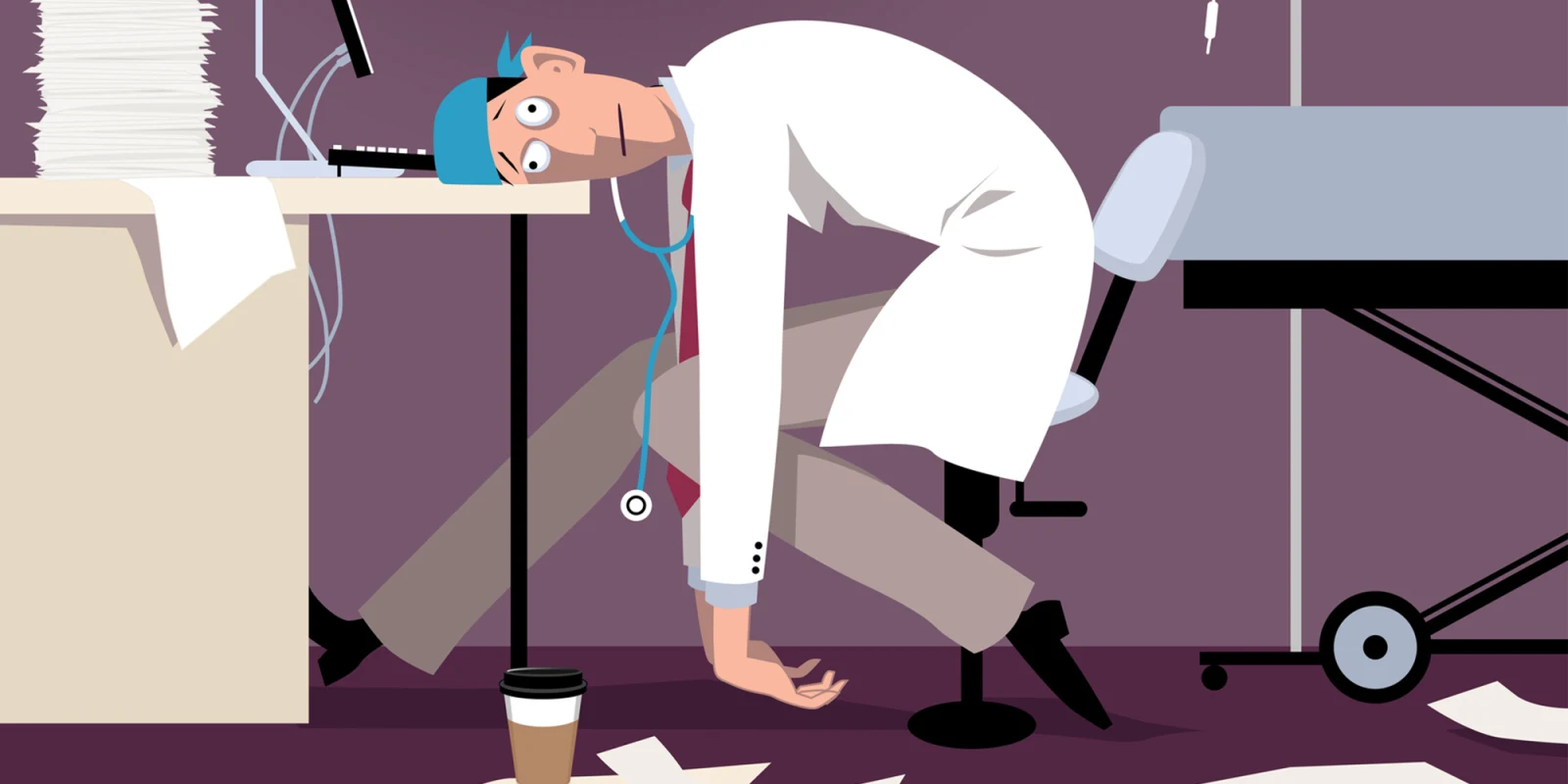
It has only been four months, but residency has already consumed my life. I sleep, socialize, and exercise less than ever before. I now yearn for the solace of a post-call day, which gives me the freedom to do anything I want, like get a haircut.
Yet every day, my wife will ask me how my shift went, and my description of a particularly grueling day or rough night on-call always ends summarily with "it was fun though!" Then, she will shake her head and laugh at me. (Because how can a stressful day or a sleepless night possibly be enjoyable?) I'm still new at this, but despite the emotional and physical exhaustion of being a first-year Neurosurgery resident, I honestly love the job. (Whoever has done a P90X ab workout knows what I'm talking about.)
Last week, our department invited a guest lecturer to Grand Rounds to speak to us about burnout and to give an overview of the mental health services that are now available to all residents. It was an informative lecture, and not least of all because it demonstrated how important resident well-being is to our faculty leadership. In any case, the numbers remain stark: burnout rates across all specialties are higher than 75% in some studies that were quoted. Given the incredible constraints that residency places on life, the burnout epidemic is no longer news to anyone. Limited as my own experience may be, it is easy to see how quickly one could become worn down.
Burnout in Neurosurgery especially is no joke. A recent study by Attenello et al. published in the Journal of Neurosurgery looked at factors associated with burnout specifically among Neurosurgery residents. Several stressors were noted to contribute to burnout among respondents: poor control over one's schedule (61%), inadequate wages/burdensome debt (49%), hostile faculty (36%), hostile co-residents (31%), and co-resident attrition (31%). In multivariate analysis, the factor most strongly associated with burnout was inadequate operating room exposure.
The overall burnout rate was 67% for Neurosurgery, one of the highest reported rates among specialties in the literature. I was initially somewhat perplexed by these numbers: If two-thirds of us experience burnout, why don't we see a more extreme rate of attrition in our specialty?
Certainly, some neurosurgeons do switch specialties and even drop out of medicine altogether, but if there has ever been a mass exodus of residents during training, I am not aware of it. In fact, despite high rates of burnout, attrition in Neurosurgery (6.7% overall) appears to fall well below other surgical residents (18% overall).
Paradoxically, 81% of respondents in the study by Attenello were satisfied with their career, 79% said they would choose Neurosurgery again, and 64% would recommend Neurosurgery to a prospective applicant. These numbers, too, are among the highest rates reported in any specialty. (Medscape often reports these metrics, for example.)
What Can We Make of this Paradox?
It seems to me that job satisfaction may be the greatest counterweight against burnout and attrition. If the rigors of training in medicine set the perfect stage for burnout to take hold, perhaps there is something about Neurosurgery residency that protects against the erosion of job satisfaction.
In taking a personal inventory, I came up with a short list:
- No surprises: It is well-known that neurosurgical training is among the longest and most demanding paths a trainee can take. For this reason, I would imagine that very few of us are taken by surprise by the workload when we begin. We hear a lot of encouragement and "it gets better" from our senior residents. (In fact, burnout and job satisfaction trend down and up, respectively, during the course of training). These inherent expectations must provide some level of psychological protection.
- Feeling valued: As the pager-wielding member on the front line of a consulting service, I already feel that my opinion is valued by my colleagues in other specialties. Two other factors contribute to persistence of this feeling as we continue in our training: 1) We are a small specialty and 2) we stick around for 7 years on average. The rapport we build with healthcare providers at every level during our junior residency is invaluable as we progress. The sense of community is never lost.
- High intrinsic reward: Neurosurgery is immensely impactful, not only for patients and their families, but also for practitioners. The nature of the profession makes it very rewarding at all levels of training.
These factors are certainly not unique to Neurosurgery, but I do believe that they are at least maximized by certain aspects inherent in our training compared to some other specialties. Of course, we can do better—there remains an enormous gap in burnout and attrition between male and female residents, and we still have not rid ourselves entirely of our machismo persona. However, we have a good foundation to build upon. More and more, Neurosurgery programs are focusing on burnout prevention and our national societies are even taking notice (such as AANS and CNS). Given all of this, there is reason to be hopeful.
In the end, I think we ought to acknowledge that burnout is not a binary state (burned out vs. not burned out). Burnout is very real, but it is also dynamic and multifactorial. Burnout is at war with all of the other factors relating to our jobs as doctors. And for most of us, thankfully, it doesn't regularly win out.
Dr. David Kurland is currently a PGY-1 resident in the Department of Neurosurgery at the NYU School of Medicine in Manhattan. He was born and raised in Baltimore, MD. You can connect with him on Twitter and Instagram.
Dr. Kurland is a 2018–19 Doximity Author.




